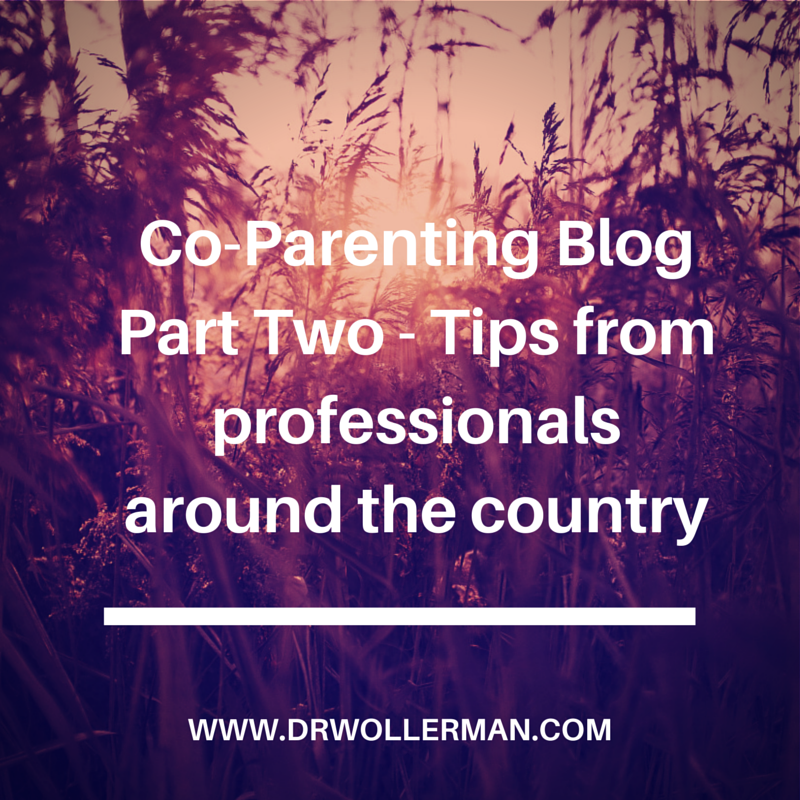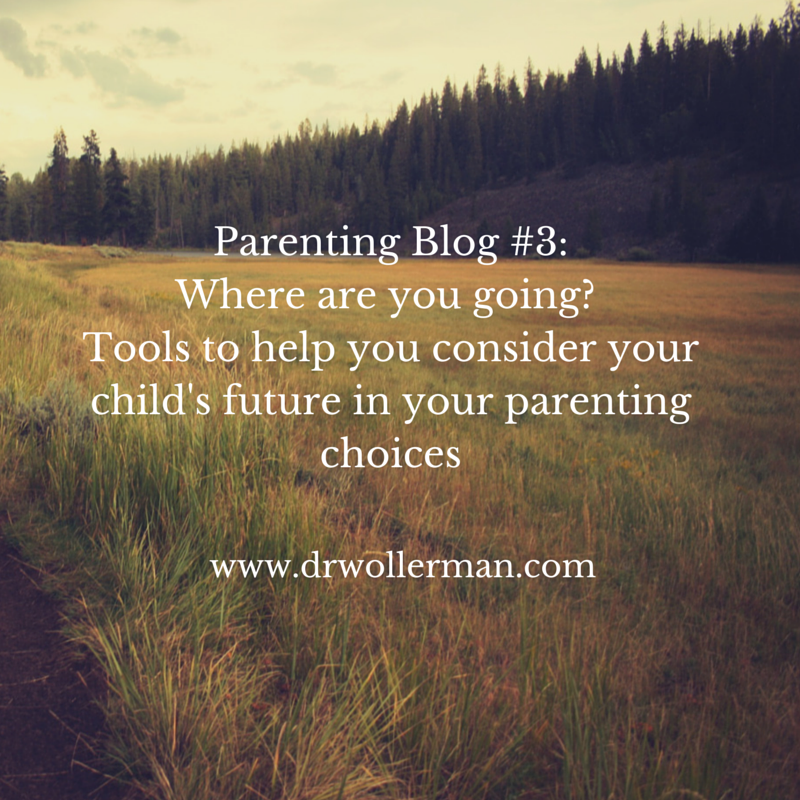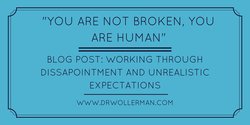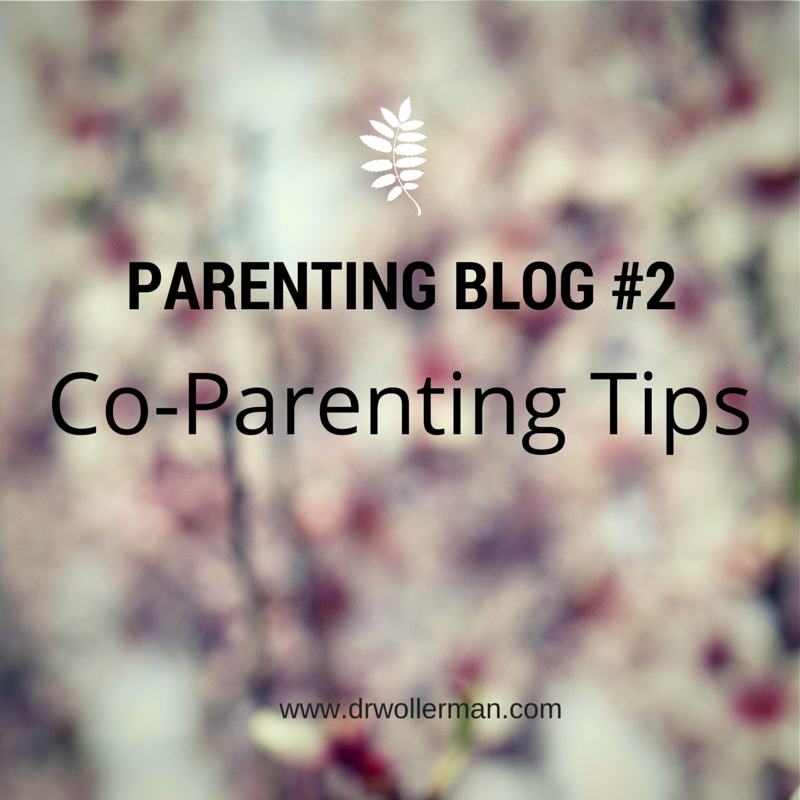Here they are (in no particular order):
“Children thrive on as much consistency, structure and routine as can be reasonably provided. It is important for parents to have regular discussions about their approach to parenting and different situations they encounter in order to ensure they are being consistent.”
~ Sarah Leitschuh, MA, LMFT
“Typically in a two-parent household, it can be difficult for both parents to have equal "weight" when it comes to discipline or decision making. For example a teen that asks dad if they can borrow the car, and dad tells teen to ask mom. Or a mom who tells the seven year old to take space in their room, but they refuse until dad comes to moms "rescue" and tells child to go to take space-and only then does the child listen. When I work with parents, I encourage whichever parent is more of the "heavy" to support and empower the other parent in implementing discipline or making decisions. If the "weight" is not shared between two parents, it can lead to feelings of frustration from both parents. The "heavy" can feel anger and frustration for always having to be the heavy, and the more passive parent can feel anger and frustration from disempowerment. It is important to discuss these feelings, and plan ahead if possible. For example, communicate with each other plans for the weekend so that dad can ok the teen driving the car without telling teen to check with mom, or communicating that dad will not rescue mom when she is disciplining the seven year old.”
~ Emily Gaines, LMFT #79569
“Never express frustration about one another in your child's earshot. Use a shared google account for the calendar just for the purpose of keeping your children's schedules on the same page (and some use a shared email for school/extracurricular communications).”
~ Cathy Canfield, MSW, LCSW, LICSW
“Co-parenting your children is the healthiest way to ease the transition and challenges of divorce. Co-parenting requires each parent to put their differences aside, as a once married couple, and proceed with the common goal of the child's best interest. If each parent is unable to cooperate in such a manner, individual counseling may be necessary so that each are able to disconnect from their own difficulties, as a couple, and communicate for the sake of the children. This does not mean each party has to like one another; however, each party should be able to demonstrate a united front when topics regarding their children arise. I have advised several families to create a private "Google Calendar" where each of them record visitation schedules and events. Children, of reasonable age, may also reference the calendar to increase daily predictability and decrease anxiety regarding parental attendance at functions, holiday routines, etc. It is essential that negative conversations regarding the opposite parent are not conducted around the child. Children love both of their parents; to put down the other in front of them causes emotional damage, confusion, and anxiety. The child may feel as if he needs to take sides, protect one parent, or may interpret the message as something being wrong with him...after all, he is half of the other person. Many times, children internalize a message they may hear about the opposite parent in a negative way. For example, if the mother states, "Your Dad is such a lazy loser," the child may internalize that as, "I am part of my Dad, so I must be a lazy loser, too."
Divorce is traumatic enough for children; keep adult conversations among adults. Watch what is sent back and forth via text message...little hands & curious minds will explore your phone.”
~ Carrie Kemether, LCPC
“One of the biggest tips as for co-parenting is that if you divorce or separate from your child's parent, that other parent will always be in your life. When your child has children, they will be there. Just because the two of you can no longer be together, finding away to be with them in a civilized manner is key. Never say negative or name call your child's parent. It will cause your child identity issues while they go through adolescence.”
~ Karen A Dwyer-Tesoriero LCSW
“If you and your ex can talk civilly, try to attend your child's (children's) school functions at the same time (open house, back to school, conferences, etc). This relieves your child of the pressure to split him/herself between the two of you. If things are still strained between you and your ex, try to at least take turns throughout each event, so your child can enjoy both of you participating, and neither of you feels disconnected from your child's teacher or education. Be sure to meet each new teacher and ask for notices/emails about class and school events. And be sure you keep talk positive and do not discuss disagreements at these events, this would be very upsetting to your child.”
~ Christine Gonzalez MA CDAAC
“It is helpful for both parents to recognize that each home will have different rules and a different structure. Accepting and acknowledging that there will be differences can cut the fighting down. When both parents convey to their children that they need to respect and follow the different rules at each home, the children are less successful at playing their parents against each other.”
~ Natasha Daniels, LCSW
“When it comes to co-parenting, the most valuable tip is to develop a respectful and collegial relationship with the other parent. Unfortunately, this can be the most difficult step. It's also important not to trash talk your child's other parent. This will inevitably backfire as your child begins to resent you for talking poorly about their parent. A very practical tip is to have a shared calendar. This can really alleviate headaches between parents. Custody and parenting plans age-out as children grow older, so it is often worthwhile to revisit custody plans as time passes. Divorce Mediators, such as myself, will help parents develop and revise co-parenting and custody plans, even if they are no longer or do not need a divorce.”
~ Leana Sykes, M.Ed, LPC, MFT
“When parents are going through a divorce or have divorced, they may find it difficult to communicate well with each other. As a result, the urge to use their child(ren) as a messenger may arise. It is best for parents to resist this urge and find a way to communicate directly with each other so that the kids do not feel caught in the middle. Confusion, guilt, and stress can result from being put in the middle. This is only going to add to an already difficult and emotional situation. Taking the extra steps of communication, even if uncomfortable or undesirable, will spare the children from this extra burden and help them to feel safe, loved, and valued by both parents.”
~ Marni Goldberg, LMFT, LPCC
“Work together to establish a family schedule. This schedule is the same at both parents homes. Have weekly scheduled "parent business meetings" . These should be scheduled for 15 minutes weekly. Each parent should add agenda items to a shared list (google doc) during the week. The limited time and pre-set agenda items helps take the emotion out of the conversations. These preset conversations also help each parent be able to communicate to the children when they will ask mom or dad about a specific request. No matter how conflicted your relationship is with each other choose to make affirming statements about the other parent to your child.”
~ Naphtali Roberts, LMFT
“Use kind words with your former partner and about them when your child is present. Children want to protect the "hurt" parent and defend the "evil" parent. Inevitably, they get caught in the middle emotionally. You are no longer together & the schedule is set, so there is no reason to engage in power struggles with your ex. Eliminate criticism & defensiveness from your communication. These things were most likely present at the end of the intimate relationship. When an intimate relationship with kids ends, you have to re-learn how to communicate with your ex "parent to parent" as opposed to "ex to ex." Don't feel guilty! If you felt you wanted to "stay together for the kids" and your partner didn’t want to, it's O.K. There is current research demonstrating that once kids adjust to their new situation, they don't fare any worse than kids from "intact" families when it comes to college stats, adult relationships, and drug or alcohol problems. If you're keeping drama low and teaching your child how to accept change and encouraging relationship maintenance with their other parent, they should be able to focus on their own life as other kids do.”
~ Colleen Mullen, Psy.D., LMFT











 RSS Feed
RSS Feed